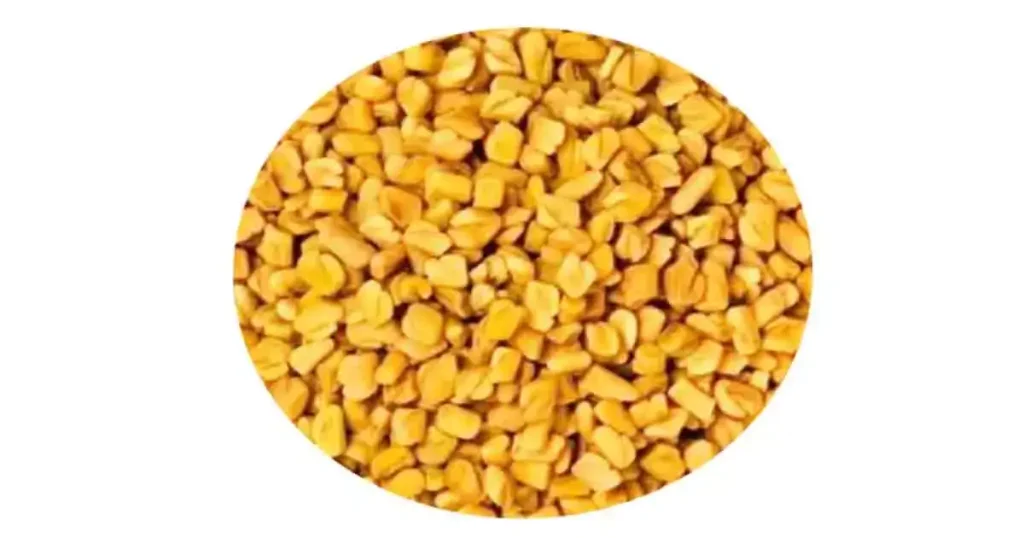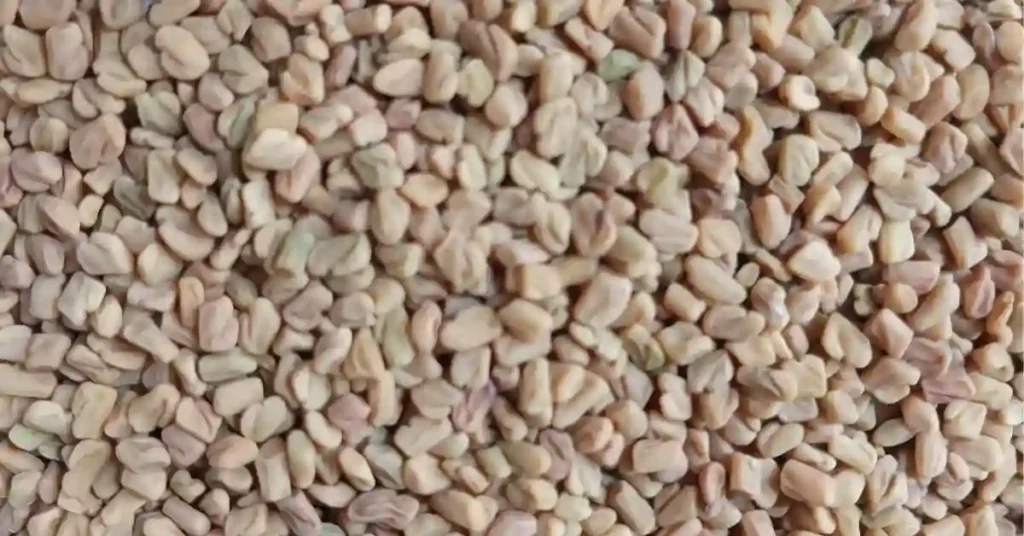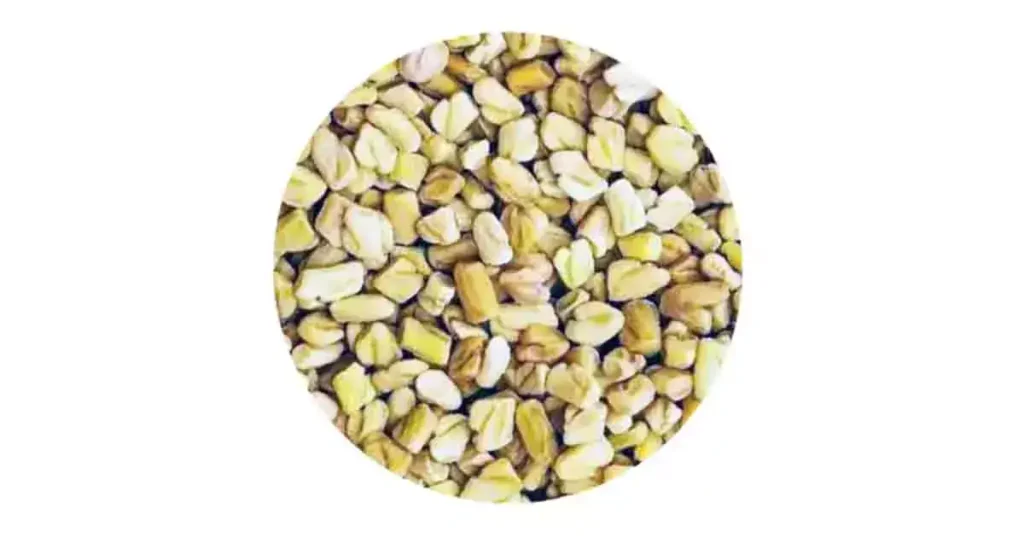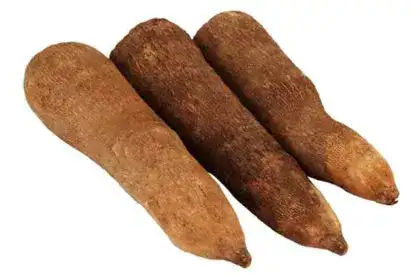Fenugreek seeds have been captivating culinary enthusiasts and health-conscious individuals for centuries. These small, rectangular, golden-brown seeds emit a unique aroma that combines the enticing notes of maple syrup and celery.
Widely used in various cuisines worldwide, fenugreek seeds serve as a versatile spice, either whole or ground. Originating from the Mediterranean region, particularly Greece and Egypt, fenugreek holds a remarkable historical significance dating back thousands of years.

Revered by ancient civilizations such as the Egyptians, Greeks, and Romans, these seeds were highly valued for their medicinal properties and were incorporated into herbal remedies and culinary preparations.
| English name | Fenugreek seeds |
| Telugu name | “మెంతులు” (menthulu) |
| Kingdom | Plantae |
| Class | Magnoliophyta |
| Order | Fabales |
| Family | Fabaceae |
| Genus | Trigonella |
| Species | T.foenum-graecum |
| Binomial name | Trigonella foenum- graecum |
The cultivation of fenugreek has spread beyond its place of origin, flourishing in warm climates and countries like Egypt, Greece, India, Pakistan, and China. In Indian cuisine, fenugreek seeds, along with the leaves known as “methi,” are celebrated for their integral role in enhancing the flavors of dishes like curries, pickles, and chutneys.
Moreover, fenugreek has found its place in traditional medicine systems, with reputed benefits including aiding digestion, regulating blood sugar levels, promoting lactation in nursing mothers, and contributing to overall well-being.
Today, fenugreek seeds continue to hold a treasured position in both culinary and medicinal contexts, offering a versatile ingredient that has withstood the test of time, captivating palates and promoting health.
The article provides abundant information on fenugreek seeds, including Fenugreek Seeds in Telugu, price, nutritional content, health advantages, application, popularity, local availability, and much more.
product of Fenugreek seed
Click here to see product of Fenugreek on Amazon.
Fenugreek Seeds in Telugu name
Fenugreek seeds, known as “మెంతులు” (menthulu) in Telugu, are highly valued for their culinary and medicinal properties. These small, golden-brown seeds have a distinct aroma and are widely used in Telugu cuisine to add flavor and depth to various dishes.
From traditional curries to pickles and chutneys, fenugreek seeds play a crucial role in enhancing the taste and aroma of Telugu delicacies.
In addition to fenugreek seeds, Telugu cuisine also incorporates the use of fenugreek seed leaves, known as “మెంతి ఆకులు” (menthi aakulu). These leaves, often referred to as methi leaves, have a slightly bitter taste and are used as a leafy green vegetable in a variety of Telugu dishes.
They are known for their unique flavor profile and are often included in lentil-based preparations like dal and sambar, as well as in stir-fries and rice dishes.
Beyond their culinary uses, both fenugreek seeds and fenugreek seed leaves hold a prominent place in traditional Telugu medicine and Ayurveda. They are believed to possess various health benefits, including aiding digestion, regulating blood sugar levels, and supporting lactation in nursing mothers.
The medicinal properties of fenugreek have made it an integral part of Telugu herbal remedies and natural remedies for common ailments.
Some photos of Fenugreek Seeds


Health and benefits
1. Beneficial for Diabetes
Fenugreek leaves offer beneficial effects for individuals with diabetes, helping to regulate glucose levels and improve lipid profiles. They contain amino acids that stimulate insulin secretion and increase insulin sensitivity, potentially preventing type 2 diabetes. Fenugreek’s high fiber content aids in digestion and prevents constipation.
Its antioxidant and anti-inflammatory properties can reduce oxidative stress and inflammation associated with diabetes, supporting overall well-being. It is important for individuals with diabetes to consult healthcare professionals before incorporating fenugreek into their treatment plan.
2. Bone Health
Fenugreek is a valuable source of calcium, magnesium, and Vitamin D, which are vital for maintaining optimal bone health. These nutrients play a crucial role in strengthening bones, stimulating bone healing, and preventing bone disorders such as fractures and osteoporosis.
Incorporating fenugreek into your diet can provide the necessary components to support bone density and reduce the risk of skeletal issues. By ensuring an adequate intake of these essential nutrients, fenugreek contributes to overall bone strength and helps maintain healthy bones throughout life.
3. Protects Liver
Fenugreek demonstrates potential in mitigating radical cell injury within the liver, making it a promising ally for liver health. Excessive alcohol consumption and an unhealthy diet can exacerbate liver damage, potentially leading to the development of liver cirrhosis, a severe condition characterized by extensive scarring of the liver tissue.
However, studies have indicated that fenugreek possesses properties that may help reduce the risk of cirrhosis by regulating the activities of enzymes involved in liver damage. By modulating these enzymatic processes, fenugreek acts as a protective shield, fortifying the liver against harm and supporting its overall function.
Incorporating fenugreek into a balanced lifestyle may offer additional benefits for liver health, but it is crucial to consult healthcare professionals for personalized advice and guidance.
4. Antimicrobial Activity
Fenugreek extracts possess impressive antimicrobial properties, effectively inhibiting the multiplication of bacteria and providing protection against highly potent strains. Furthermore, studies have identified defensin, a beneficial component found in fenugreek, which not only suppresses the proliferation of fungus but also enhances wound healing.
The antibacterial effects of fenugreek contribute to its therapeutic potential in combating infections and promoting the recovery of damaged tissues.
By harnessing its antimicrobial properties, fenugreek offers a natural and valuable resource for supporting overall health and wellness. vary, and consulting healthcare professionals is advisable for personalized guidance and treatment.
5. Weight Management
Obesity and unhealthy weight gain pose significant risks to overall health, increasing the likelihood of developing chronic conditions such as diabetes and heart diseases. These health issues are often linked to excessive calorie consumption, typically resulting from overeating and poor dietary choices.
However, incorporating dietary fiber into one’s daily intake has been proven effective in promoting weight loss and managing weight-related concerns.
Moreover, fenugreek’s fiber-rich composition offers additional advantages beyond weight management. The fiber acts as a bulking agent, aiding in proper digestion and promoting regular bowel movements, which is essential for maintaining a healthy gastrointestinal system. This, in turn, supports overall digestive health and contributes to an improved metabolism.
6. Improves Kidney Function
Improving kidney function is crucial for overall health, as kidney stones can arise from a combination of factors including dietary habits, oxalic acid, and calcium hydroxyproline. Kidney stones, formed by mineral deposits, can cause discomfort and complications if untreated.
Fenugreek shows promise in promoting kidney health by preventing stone formation and supporting optimal kidney function. Its antioxidant and anti-inflammatory properties reduce kidney inflammation and oxidative stress, minimizing the risk of renal tissue damage.
The high fiber content of fenugreek aids in hydration and waste excretion, preventing the crystallization of substances that contribute to stone formation. It is important to consult with a healthcare professional to assess individual needs and consider fenugreek as part of a well-balanced diet, along with proper hydration and adherence to medical guidelines, to support kidney function and reduce the risk of kidney stones.
7. Female Reproductive health
Fenugreek has positive effects on female reproductive health, particularly in easing menstrual irregularities and regulating the menstrual cycle. It promotes uterine contractions, restores normal menstruation patterns, and aids in hormonal balance.
Fenugreek’s nutrient composition, including iron and essential minerals, helps address anemia and fatigue during menstruation. Its phytoestrogenic properties may alleviate symptoms of premenstrual syndrome (PMS) and menopause by mimicking estrogen’s action and regulating hormonal fluctuations.
Individual experiences and health conditions can vary, so consulting with a healthcare professional is advised for proper usage. Maintaining a balanced diet, regular exercise, and stress management also contribute to overall reproductive well-being.
8. Precautions and Considerations to Keep in Mind
While fenugreek offers various benefits, it is important to exercise caution and consider precautions. Consult a healthcare professional if you take medications, as fenugreek may interact with certain drugs. Start with small fenugreek doses to avoid gastrointestinal discomfort and gradually increase intake.
Individuals with legume allergies should be cautious. Monitor blood sugar levels closely if you have diabetes or hypoglycemia, and pregnant women should consult their healthcare provider. These precautions ensure safe and appropriate use of fenugreek, allowing individuals to enjoy its benefits while minimizing potential risks.
Nutritional value of fenugreek seed
Nutritional value of fenugreek as per 100 gram
Here” µg” is micrograms and “mg” is miligrams
| Nutrition | Amount | % daily value |
|---|---|---|
| Energy | 1,3252 kJ (323 kcal) | – |
| Carbohydrates | 58 g | – |
| Dietary fiber | 25 g | – |
| Fat | 6.4 g | – |
| Protein | 23 g | – |
| Thiamine (B1) | 0.322 mg | 28% |
| Riboflavin (B2) | 0.366 mg | 31% |
| Niacin (B3) | 1.64 mg | 11% |
| Vitamin B6 | 0.6 mg | 46% |
| Folate (B9) | 57 µg | 14% |
| Vitamin C | 3 mg | 4% |
| Calcium | 176 mg | 18% |
| Iron | 34 mg | 262% |
| Magnesium | 191 mg | 54% |
| Manganese | 1.23 mg | 59% |
| Phosphorus | 296 mg | 42% |
| Potassium | 770 mg | 16% |
| Sodium | 67 mg | 4% |
| Zinc | 2.5 mg | 26% |
| Water | 8.8 g | – |
Price of Fenugreek Seeds in Telugu areas
In Telugu-speaking areas, fenugreek leaves, also known as “Menthikoora” or “Kasoori Methi,” are priced at Rs 263 for 500g. These aromatic leaves are an integral part of Telugu cuisine, imparting a unique flavor and aroma to popular dishes like Menthi Koora Pappu, Menthi Bajji, and Menthi Chutney.
Available in local markets and grocery stores, the price of fenugreek leaves may vary depending on factors such as location, quality, and seasonal availability. It is advisable to select fresh, vibrant green leaves that are free from damage or wilting when making a purchase.
To maintain their freshness and extend shelf life, it is recommended to store fenugreek leaves in a cool, dry place or refrigerate them. The value of fenugreek leaves in Telugu cuisine lies not only in enhancing the taste of dishes but also in promoting overall well-being.
Supply of Fenugreek seeds in Telugu areas
In Telugu-speaking areas, fenugreek seeds, known as “menthulu,” are readily available in local markets, offering a range of culinary and health benefits. These small, golden-brown seeds derived from the fenugreek plant are in high demand due to their extensive usage in Telugu cuisine.
Local farmers and distributors ensure a steady supply of fresh and high-quality fenugreek seeds, meeting the consistent demand. Fenugreek seeds play a pivotal role as a key spice in Telugu recipes, such as curries, chutneys, pickles, and spice blends, adding a distinct, slightly bitter, and nutty flavor.
Alongside the seeds, fenugreek leaves, or “menthikoora,” are highly valued for their unique taste and are commonly used in dishes like Menthi Koora Pappu, Menthi Bajji, and Menthi Chutney, offering a fresh and herbaceous flavor.
Together, fenugreek seeds and leaves contribute to the rich culinary heritage of Telugu cuisine, providing a versatile and flavorful addition to a wide range of dishes.
Famous dishes of Fenugreek Seeds in Telugu areas
In Telugu-speaking areas, fenugreek seeds, or “menthulu,” are widely used in various traditional dishes, adding their distinct flavor and aroma. Here are some famous local dishes made with fenugreek seeds:
1. Menthi Koora Pappu
This is a classic Telugu dal dish prepared with lentils, fenugreek seeds, and a blend of spices. The fenugreek seeds contribute a unique taste and aroma to the dal, enhancing its flavor profile.
2. Menthi Bajji
Menthi Bajji refers to deep-fried fritters made with fenugreek seeds and chickpea flour batter. These fritters are crispy on the outside and have a delightful bitterness from the fenugreek seeds.
3. Menthi Chutney
Menthi Chutney is a popular condiment made by grinding fenugreek seeds, coconut, and other spices. It is typically served as a side dish or accompaniment with dosas, idlis, or rice.
4. Methi Pulao
Methi Pulao is a flavorful rice dish prepared with basmati rice, fenugreek leaves, and aromatic spices. The fenugreek leaves lend a unique taste and aroma to the pulao, making it a delicious and nutritious meal.
5. Menthi Majjiga
Menthi Majjiga, also known as Fenugreek Buttermilk, is a refreshing beverage made with yogurt, fenugreek seeds, and spices. It is a popular summer drink in Telugu cuisine, known for its cooling and digestive properties.
These dishes highlight the versatility of fenugreek seeds in Telugu cuisine, where they are used to enhance the taste and aroma of various preparations. From dals to fritters and condiments to rice dishes, fenugreek seeds play a vital role in adding depth and flavor to Telugu delicacies.
Conclusion
In conclusion, fenugreek seeds, known as “menthulu” in Telugu, are a versatile and highly valued ingredient in Telugu-speaking areas. The local market supply ensures the availability of fresh and high-quality fenugreek seeds for consumers.
Beyond their culinary uses, fenugreek seeds offer numerous health benefits, including aiding digestion, regulating blood sugar levels, and possessing anti-inflammatory properties.
The famous local dishes made with fenugreek seeds, such as Menthi Koora Pappu, Menthi Bajji, Menthi Chutney, Methi Pulao, and Menthi Majjiga, showcase the culinary prowess of Telugu cuisine and the unique flavor profile that fenugreek seeds bring to these dishes.
Whether it’s enhancing the taste of curries, adding a delightful bitterness to fritters, or infusing a fresh herbal note in chutneys, fenugreek seeds continue to play a significant role in enriching Telugu culinary traditions and promoting overall well-being.
Frequently asked questions
1. Are there any specific precautions to take when using fenugreek seeds topically for skincare purposes?
When using fenugreek seeds topically for skincare, it is important to perform a patch test, dilute with a carrier oil, protect from sun exposure, choose high-quality seeds, and consult a professional if needed. These precautions ensure safety and maximize the benefits of fenugreek seeds for skincare.
2. Are fenugreek seeds suitable for individuals following a gluten-free diet?
Yes, fenugreek seeds are suitable for individuals following a gluten-free diet. Fenugreek seeds do not contain gluten, as they are a naturally gluten-free ingredient. They can be safely consumed and used in cooking for individuals with gluten intolerance or celiac disease.
However, it is essential to ensure that the fenugreek seeds have not been processed or contaminated with gluten-containing products during manufacturing or packaging. Always check the labels and choose certified gluten-free fenugreek seeds to be confident in their suitability for a gluten-free diet.
3. Are fenugreek seeds safe for individuals with specific medical conditions, such as kidney disease or hypothyroidism?
Seek medical advice before including fenugreek seeds in the diet if you have kidney disease or hypothyroidism. Fenugreek seeds are generally safe.
but their high potassium content may need to be limited for kidney disease, and their goitrogenic effects may require caution for hypothyroidism. Personalized guidance from healthcare professionals is essential to assess potential interactions and ensure suitability.
4. Are fenugreek seeds safe for children?
Fenugreek seeds are generally safe for children when used in moderate amounts. However, it is recommended to consult a pediatrician before introducing fenugreek seeds into a child’s diet, especially for infants or toddlers. Children with specific health conditions or allergies may have individual considerations.
The pediatrician can provide guidance on the appropriate dosage and ensure that fenugreek seeds are safe for your child based on their age, health status, and any potential interactions with medications or existing health conditions.
5. Are there any differences between using whole fenugreek seeds and ground fenugreek powder in cooking or remedies?
There are notable differences between using whole fenugreek seeds and ground fenugreek powder in cooking or remedies. Whole fenugreek seeds have a stronger flavor and aroma compared to the powder. When using whole seeds, they can be toasted or dry roasted to enhance their flavor before grinding.
Ground fenugreek powder, on the other hand, is more convenient to use and easily incorporates into recipes or remedies. Both forms can be used interchangeably, but the choice depends on personal preference and the desired intensity of flavor and aroma in the final dish or remedy.

